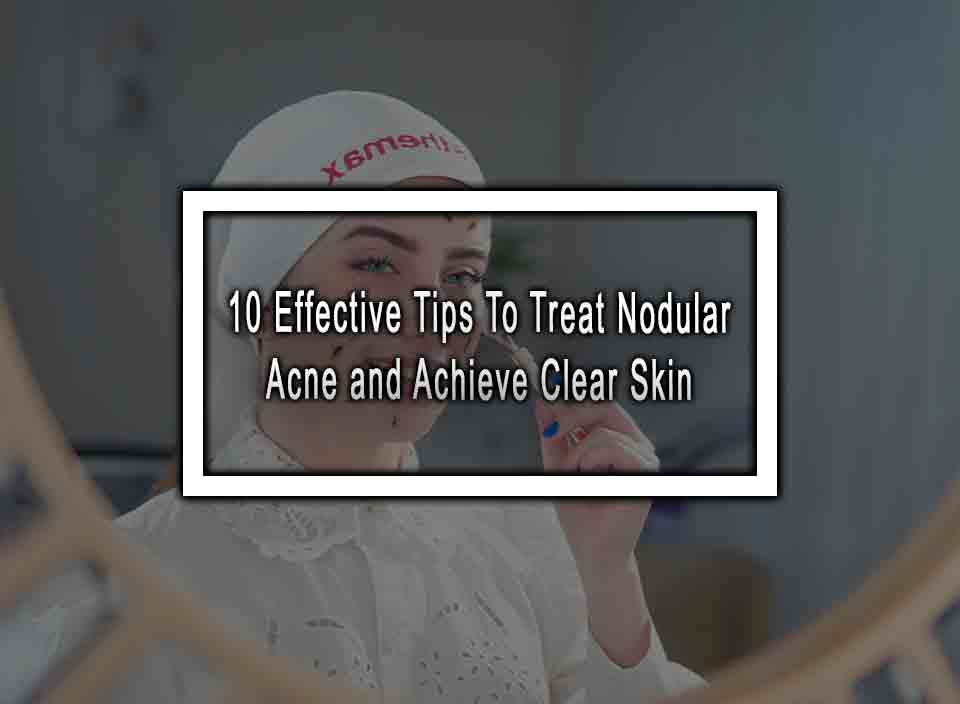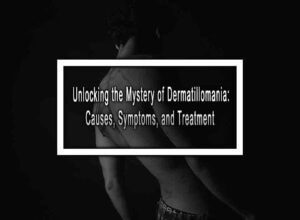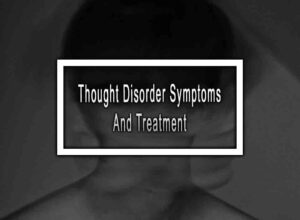Table of Contents
ToggleWhat is Nodular Acne and How to Kick It Out of Your Life!
Nodular acne is an intense form of acne that can be incredibly frustrating to deal with. These painful, large, and deep blemishes can leave you feeling self-conscious and affect your overall confidence. But fret not, as we’ve compiled a list of effective tips and tricks to help you combat nodular acne and finally achieve clear, bump-free skin that you’ll be proud to show off!
1. Seek Professional Guidance for Personalized Treatment:
Your skin is unique, and so is your acne. Visiting a dermatologist is crucial in finding the right treatment approach for your nodular acne. They can assess your specific condition, prescribe medications, and advise you on proper skincare routines tailored to your needs.
2. Never Skip Your Skincare Routine:
Consistency is key when it comes to managing nodular acne. Follow a daily skincare routine that includes gentle cleansing, toning, and moisturizing. Look for non-comedogenic products that won’t clog your pores or aggravate your acne.
3. Stay Away from Harsh Scrubs:
While exfoliation is important for maintaining healthy skin, abrasive scrubs can worsen nodular acne. Opt for chemical exfoliants with ingredients like salicylic acid or glycolic acid, which help unclog pores and reduce inflammation.
4. Treat Nodular Acne with Topical Retinoids:
Topical retinoids, such as tretinoin or adapalene, are a gold standard for treating nodular acne. They work by unclogging pores, reducing inflammation, and promoting cell turnover. However, consult your dermatologist before using retinoids as they can cause dryness and sensitivity.
5. Incorporate Benzoyl Peroxide Into Your Routine:
Benzoyl peroxide is an effective ingredient for fighting acne-causing bacteria. It helps reduce inflammation, unclog pores, and prevent future breakouts. Start with a lower concentration and gradually increase if your skin tolerates it well.
6. Don’t Forget the Power of Salicylic Acid:
Salicylic acid is a staple ingredient in many acne products. It helps exfoliate dead skin cells, unclog pores, and reduce inflammation. Look for cleansers or spot treatments with salicylic acid to target those pesky nodules.
7. Explore Antibiotics as a Treatment Option:
Your dermatologist might prescribe oral or topical antibiotics to fight severe nodular acne. These medications help reduce inflammation and control bacterial growth. Remember to follow your dermatologist’s instructions and complete the full course of treatment.
8. Consider Hormonal Therapy for Nodular Acne:
Hormonal imbalances can contribute to nodular acne, especially in women. Birth control pills or other hormonal therapies can help regulate hormone levels and improve acne. Consult your doctor for the best treatment options suitable for you.
9. Embrace a Healthy Lifestyle:
Maintaining a balanced diet, drinking plenty of water, exercising regularly, and managing stress can significantly contribute to your overall skin health. These habits support your body’s natural healing processes, making it easier to combat nodular acne.
10. Patience is a Virtue:
Patience is key when dealing with nodular acne. Remember that treatments take time to show results. Stick to your skincare routine, stay consistent with medications, and keep in touch with your dermatologist. With proper care, clear and radiant skin is within your reach!
Conclusion
Dealing with nodular acne can be tough, but armed with the right knowledge and strategies, you can regain control over your skin. Remember to consult a dermatologist, be consistent with your skincare routine, and explore suitable treatment options. By following these tips, you’ll say goodbye to bumpy skin and hello to a confident, acne-free you! So, don’t lose hope – clearer days are just around the corner!
Nodular Acne FAQ
Here are the most common questions about nodular acne.
1. What causes nodular acne?
It is caused by an overproduction of oil (sebum) by the sebaceous glands, which can mix with dead skin cells and clog the pores. This leads to the development of bacterial infections and inflammation, resulting in the formation of nodules.
2. Who is more prone to developing nodular acne?
It can affect anyone, but it is more common in teenagers going through puberty due to hormonal changes. It can also occur in adults who have a history of acne or hormonal imbalances.
3. How is nodular acne different from regular acne?
Nodular acne is more severe and deeper within the skin compared to regular acne. Regular acne usually consists of whiteheads, blackheads, and smaller inflamed pimples, while nodular acne presents large, painful, and inflamed nodules or cysts.
4. Can nodular acne be prevented?
While it cannot be completely prevented, certain lifestyle changes can help reduce the likelihood of developing this kind of acne. These can include maintaining good hygiene, avoiding touching the face, using non-comedogenic skincare products, and managing stress levels.
5. Are there any home remedies for nodular acne?
While home remedies may provide some relief, they are not a substitute for professional medical treatment. However, gentle skincare practices like washing the face twice daily with a mild cleanser, avoiding harsh scrubbing, and using oil-free moisturizers may help manage symptoms.












